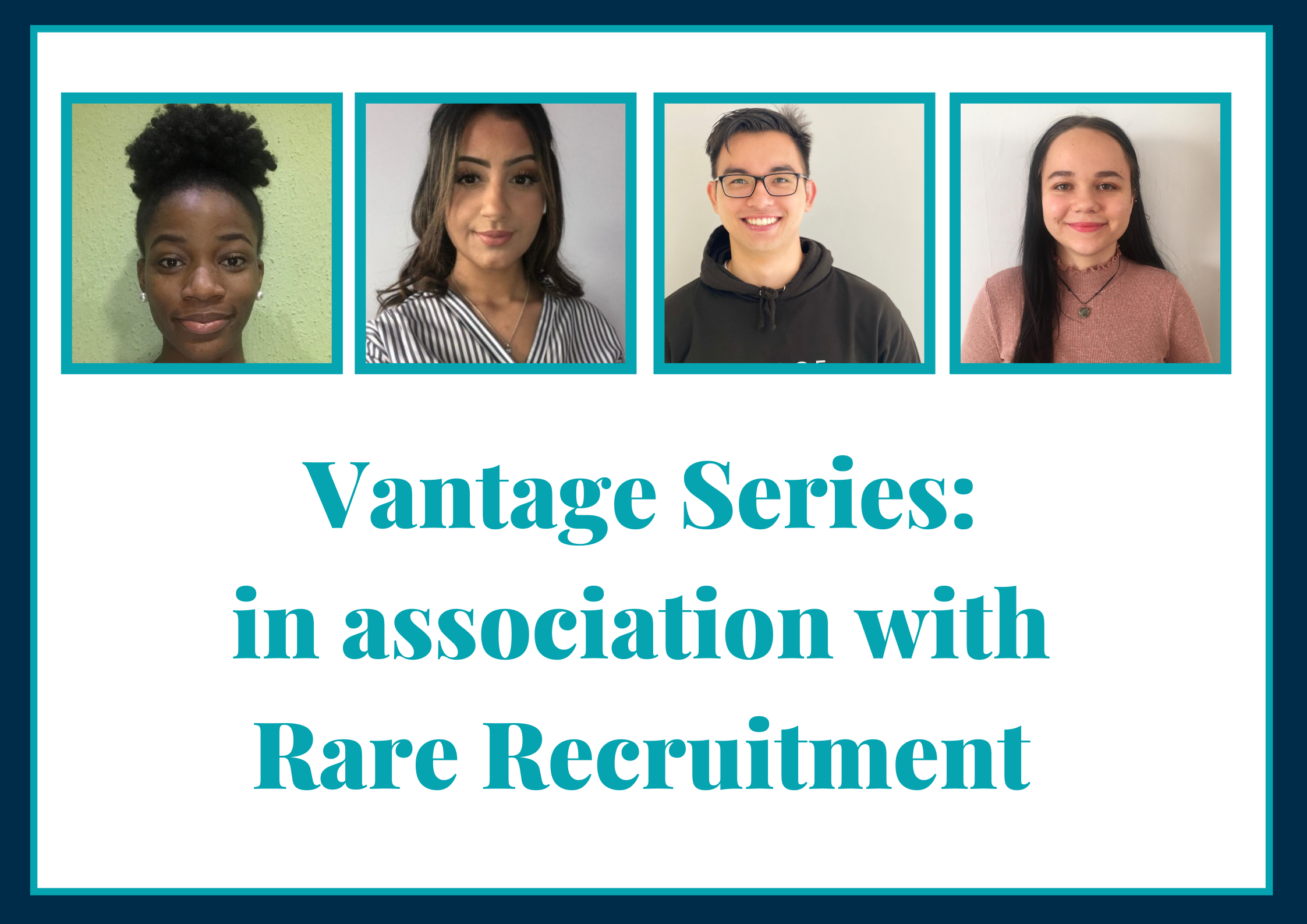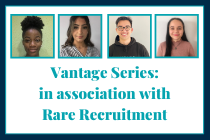
Here a selection of Vantage campus ambassadors share their thoughts on the representation of Black lawyers in the profession; law firms’ response to Black Lives Matter in 2020; and the factors that affect the recruitment and retention of Black candidates.
Chambers Student: How do you feel about law firms’ current D&I efforts?
Ebere Okoroafor, University of Nottingham, Second-Year Law Student: It depends on the firm. Some D&I efforts have felt performative and I’ve attended events which discouraged me to apply.
“It has got better with Black Lives Matter and all the protests, but I’m just realistic.”
A lot of firms now have diversity networks but at open days, I always ask for examples of the kind of events and initiatives that these networks do. Sometimes, I will catch up with a trainee after an event and include questions about the differences these D&I networks make in the firm.
It has got better with Black Lives Matter and all the protests, but I’m just realistic. Some firms only increased initiatives following this and at times I wonder if it had to take all of that happening to see genuine efforts.
CS: What are your thoughts on law firms’ response to Black Lives Matter this year?
Tobi Alao, University of Warwick, Second-Year Sociology Student: BLM has gained more attention from firms this year. Before that some firms did not make an effort. I’m talking, for instance, of a panel made up of just white people, which would make some not even consider applying for a firm.
I'm wary of the long-lasting impact of BLM. I’m apprehensive and feel that I can only truly believe it when I see it. The firms are saying that they are trying to increase diversity and recruit diverse talent as it’s beneficial to the business and the clients to have a range of ideas to offer, but I can’t believe it until I see it.
“I'm wary of the long-lasting impact of BLM. I’m apprehensive and feel that I can only truly believe it when I see it.”
Amalia Albu, University of Leeds, Second-Year Law Student: I have thought about the BLM movement and how many firms reacted to it this year. I wonder how many did so because they felt they needed to in order to stay on top of their game and ensure future applicants. I don’t want to say that this is the case for all firms, but I do think us students need to be aware that some firms might just be saying these things.
Ebere: I am not too sure. There is someone who I follow on Instagram and she is a future trainee solicitor. She drafted an open letter to the firm she is going to be working at, and the response was very encouraging as someone applying to the firm.
CS: What would make you or other students not want to apply to a firm?
Ebere: Usually firms where the diversity initiatives comes across performative or the people I speak to do not seem to care too much about it.
“I always feel that if a firm is actually doing D&I then shouldn’t those working at the firm know about it?”
My friend spoke to a trainee solicitor at a law firm dinner who did not really know much about what the firm was doing. I always feel that if a firm is actually doing D&I then shouldn’t those working at the firm know about it? Obviously, not everyone will be taking part in all the initiatives, but it is encouraging to see when many people are aware.
CS: How do you feel about law firms’ diversity statistics with regards to race and ethnicity?
Ebere: The statistics themselves don’t really put me off. I think my issue with the statistics is the use of the ‘BAME’ or ‘BME’ terms. It can sometimes feel like a category for everyone who is non-white without having to address issues that may affect a certain ethnicity more than others. The statistics are very BME, but I usually wonder how many people are Black in the ‘BME’.
The shift towards diversity has been relatively recent so it will take time. It doesn’t take just two or three years to achieve that. For me, it mainly matters whether the firm is making genuine efforts at the moment.
“The statistics are very BME, but I usually wonder how many people are Black in the ‘BME’.”
Tobi: Firms say that they have something like 40% of lawyers from an ethnic minority background but barely any turn out to be Black. I don’t like the ‘BAME’ term as I feel it’s a way for firms to hide that they are not recruiting from particular ethnic groups. BAME can be used like a marketing tool so you don’t look like you’re not supporting diversity. The term covers a lot of people and you can’t group together such different experiences.
CS: How do you feel about your position as you look to start your legal career?
Tobi: 100% as a Black woman I feel that I'm at a disadvantage. There’s no shying away from it if you’re living it. I know the kind of person I am and if I want something then I will go for it and get my foot in the door. I will do it, but I do see that things will be easier for my white counterparts and males. I can’t change it, so I just have to work as hard as I can to get to the top so younger Black and Asian people feel they can get there too.
“Experiencing the intersectionality of race and gender is a difficult thing to go through.”
Experiencing the intersectionality of race and gender is a difficult thing to go through. The experience for white women is different, which is not to discredit their experience as they have struggles too. For me it is both race and gender, the stereotypes that come with that and the unique concerns you have. I was speaking to a lawyer and one of the things she mentioned was that she liked her firm because she didn’t feel uncomfortable about her hair. One day she can wear her braids, another day she can wear her hair another way. A white woman would never go through that fear, but as a Black woman you feel apprehensive about it. We wonder about these things that we shouldn’t have to wonder about.
CS: Are there things that concern you about applying to law firms?
Ebere: One issue for me, for example, is my hair. I have blonde braids in now but sometimes I consider getting black braids for events. I spoke to a trainee who had blonde braids in at the time but said that when she went to interviews, she didn’t wear her braids like that to avoid it being a topic of conversation. She didn’t want her hair to be a distraction or a topic.
“She didn’t want her hair to be a distraction or a topic.”
A trainee I spoke to said something that really helped. ‘If a firm is going to look at your hair and think something else about you then you don’t even want to be there in the first place!’ There are firms out there that will be for you.
CS: Have you been impressed by a law firm’s approach to racial and ethnic inclusion?
Tobi: The biggest thing that makes an impression on me is when a firm isn’t just talking the talk. There’s one firm that I’ve always been impressed with because they don’t have to just talk about it as they can simply show it. You can see it just from the number of Black partners they have on LinkedIn.
It’s all well and good to recruit us but if we can’t see someone like us in a senior position then students aren’t inclined to join and those who are at the firm may start to leave after three or four years. If you can’t see that you’ll be elevated, then that has a big impact. One of the magic circle firms has a partner who’s a black woman and she’s spoken to us – I can still look up to her and think that it’s not a long shot and it’s not all just talk.
“It’s all well and good to recruit us but if we can’t see someone like us in a senior position then students aren’t inclined to join and those who are at the firm may start to leave after three or four years.”
CS: Are you hopeful that racial and ethnic diversity will improve in the future?
Tobi: I am hopeful, but I try to be realistic. There are some firms who are genuinely committed to this and others that don’t appear to think it’s a priority as long as they’re reaching gender and BAME targets. I’m hopeful that we’ll see more people from ethnic minority backgrounds getting senior roles and visibility in those positions.
